The Surprising Tricks for Having "Presence," That Thing All Confident Women Have
Courtesy of Harvard professor and viral TED speaker Amy Cuddy's must-read new book.
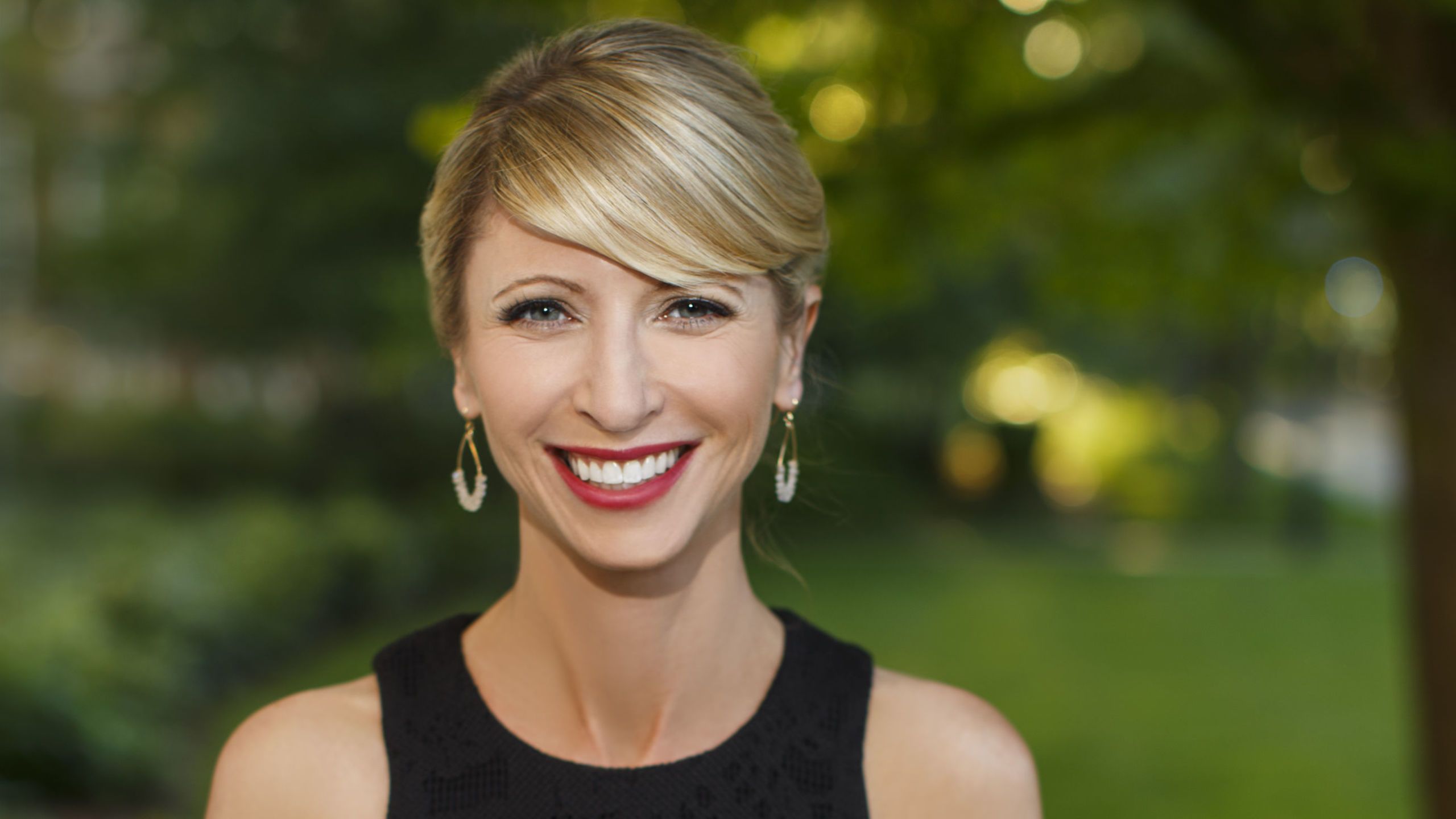

The morning of my interview with social psychologist Amy Cuddy, I stand in one of the bathroom stalls at Marie Claire and do power poses. First I plant my legs wide and put my hands on my hips, Wonder Woman style, and hold the position before throwing both arms over my head the way runners do when they cross the finish line, something I don't have much experience with. I think I was supposed to pick just one of these poses and hold it for two minutes in order to raise my testosterone and lower my cortisol levels, but I find so much enjoyment in the transformation I feel that I'm certain more time than that has elapsed before I exit the stall. When I do, I catch my own confident smile in the mirror. The power poses are working!
Cuddy's book Presence comes out this week, and it's a triple threat: enjoyable, fascinating, and a brightly packaged New Year's resolution—the jacket is a warm, sunny shade of yellow—that isn't unwelcome the way going to the gym five times a week is. In fact, quite the opposite. Cuddy, a social scientist and professor at Harvard Business School, dives into how to achieve presence, which she defines as "the state in which we stop worrying about the impression we're making on others and instead adjust the impression we've been making on ourselves." It's a worthy goal, one that can impact interactions that range from momentous (a job interview) to the mundane (meeting someone new at a party).
Cuddy is best known for her "Your body language shapes who you are" TED Talk, the second most-watched TED Talk of all time. In it, she discusses her own impostor syndrome and how she became intrigued by the psychology of "fake it 'til you make it." She wondered whether our non-verbals could guide how we think and feel about ourselves—basically, if our bodies can change our minds. She and her team conducted an experiment that found subjects who did what she termed "power poses" before an interview achieved higher levels of feeling powerful, assertive, and calm (that's the testosterone) and lower levels of stress (that's the cortisol) and did much better at the interview than those who took low-power poses, like slouching with crossed arms. Ever since, she's been hearing from viewers whose lives were changed by the power poses they did before major moments.
Useful as the poses are (and I can attest that I've rarely felt more at ease during an interview), there's a lot more to the body-mind connection, and that's what Presence lays out so well. Cuddy chatted with MC about her new book, female body language, and being a psych nerd.
Marie Claire: You write in the intro of Presence about not being sure how much your TED Talk would resonate. What do you make of how powerful it's been, that it's been life-changing for many viewers?
Amy Cuddy: It's still hard to believe, and it's really heartening. If you would have asked me what I hope will happen with the work that I do in my life, I would have said that I'd want it to reach and help lots of people. So it's kind of my number one desired outcome and still it's hard to believe. Honestly, I can't bear to re-watch the talk. I just find it awful, so I really don't understand how people even tolerate it, which is kind of funny. But I think that the themes that come up are universal, and they're not exactly the ones that I expected when I first set out to write it. I thought it would be more science-y, less personal. But the whole impostor syndrome thing, I had no idea how widespread that was. I was shocked with how many people who wrote to me felt like impostors, and equal numbers of men and women. I think that invited people in a little bit more, to be more open to the other things I was saying.
MC: What was your goal when you started writing Presence?
Stay In The Know
Get exclusive access to fashion and beauty trends, hot-off-the-press celebrity news, and more.
AC: There were a couple of things. I wanted to better connect with all the people who were reaching out to me, to give them more context and more things they can use. I also wanted to find a way to share the stories—I think people feel very seen when they can relate to somebody that looks like them, not physically, but I mean in the same kinds of experiences and actually in some way, the more different they seem on a superficial level, the more powerful it is that you learn that they have had the same experiences you've had. I feel that power posing caught on because it was a catchy phrase, but there's so much more to the body-mind connection, and I don't mean that in as spiritual a way as it might sound. My primary goal is really to get people to open up and when they feel themselves contracting and collapsing to reduce that, and to know when that happens, "Oh, something's going on that's making me feel this way, and if I force my body open a bit, I will feel less powerless."
MC: Why is that openness and presence in general so important?
AC: When we close ourselves off, we're not just closing ourselves off to other people, we're closing ourselves off from ourselves and impeding ourselves. When you open up, you allow yourself to be who you are. I think of the story of the young actor Will Cuddy, who went to an audition and came out going, "I nailed it," and his dad asked if he got the role. And he almost forgot he was auditioning for a role. That's the dream scenario: when people approach these stressful situations not focused on that concrete outcome but just focused on being there and being themselves and enjoying connecting with people. You're not going to be present all the time, but if you can figure out how to connect with yourself and bring that self forth in those moments, you will probably be feeling a lot better over time, and it's likely that even though you're not focused on the outcome, the outcomes will be better.
"The whole impostor syndrome thing, I had no idea how widespread that was. I was shocked with how many people who wrote to me felt like impostors, and equal numbers of men and women."
MC: A lot of having presence is that ability to turn off that internal feedback loop of self-judgment and over-analysis. Is there an easy way to get rid of this habit?
AC: If there were, I probably would have written a page instead of a book! But I think, first, you have to understand that everyone is walking around with these self doubts, so there's something reassuring about that. And self-doubt in one or a few areas doesn't mean that you have generally low self-esteem. And you have the power to get yourself out of feeling that way. I think it's in the second chapter where I talk about self-affirmation and affirming your core values. And I think that's a really simple way for you to ground yourself in who you are so when you walk into that...test or something, you know that even if you don't nail it, you're going to be okay because you still have yourself. I think we feel like we're untethered and kind of floating around, and every assessment is something we can tie ourselves to, when the reality is they're sort of the flags that we can catch and have fun with, but they're not the things that make us who we are. That was like many metaphors. I've never said it that way before.
MC: That makes total sense. It's so easy to look to these assessments for validation.
AC: Exactly, exactly. Then the whole body-mind thing comes into play, when you are feeling that self-doubt and your body is not going to help you if you're not paying attention. Your body's going to go with the self-doubt and make you feel worse, so by making the adjustments—pulling your shoulders back, standing up straight, walking in a more sort of expansive way—all sorts of little things will help pull you out of that self-doubt.
MC: Your TED Talk discussed power and feeling powerful in these poses that can be really transformational. How do you see the relationship between power and presence?
AC: This is sort of the psych nerd in me but, first of all, I couldn't believe it but there really wasn't a definition of presence in the psychological literature. So I thought I needed to define it. And power is generally defined as control over resources and control over access to resources, which often means control over other people because we're thinking about things like financial resources or shelter, or even love and affection, but we also possess resources that we sometimes can't access. The first story in the intro of Presence, about the pain in taking the MCAT perfectly captures that. The med student [who was worried about her future and the test] knew all the things she needed to know to do well on the it, it was that she was having difficulty accessing the knowledge she had. And so that personal power just allows us to be in the moment. Presence is about being approach-oriented, optimistic, open to other people, and able to be in the moment cognitively. That's exactly what presence is.
MC: Your book cites Adam Galinsky, an expert on the psychology of power, who says that behaviors typical of women are typical of powerless people and vice versa. We're conditioned to make ourselves smaller. What can we do to counter behaviors like this that become deeply ingrained?
AC: I've been studying sexism for 15 years, and it's much easier to document the existence of sexism than it is to document the existence of interventions that reduce it. It's really hard to find ways to change the way people see people in different groups. It should be our goal, and we're working for that, but it's hard. I think body awareness alone really helps. I hear from so many women who really started to pay attention to it at all times and stopped, you know, touching their faces and necks and playing with their hair and twisting their legs. I think women become more aware of it when they learn about this stuff, and you see their body language change.
"I hear from so many women who really started to pay attention to it at all times and stopped, you know, touching their faces and necks and playing with their hair and twisting their legs."
MC: A major theme in your work is the importance of what you're communicating to yourself even though most people traditionally think of body language as how we communicate with others. Why is this type of self-communication so important?
AC: I would say there is a conversation happening between your body and mind all the time. Even when you're sleeping, your body is communicating the information to your mind. And so to me it feels like, why not harness that? If it's happening all the time, why not control the content of the conversation? I think it's such an easy way to get in there and change the way we feel about ourselves and the world, and I think we're squandering an opportunity if we don't do that. That conversation is happening whether we're paying attention to it or not, so why not pay attention to it?
MC: My last question is, the chapter in your book called "Self-Nudging" is about how tiny tweaks can lead to big changes. Is there one quick, easy thing readers could start to do today that might make a difference in the long term?
AC: This is a really simple one. If you have a phone, set an hourly reminder to yourself to check your posture.
MC: My mom will be very happy you said that.
AC: I mean, my phone is in my hand all the time. We all have them in our hands all the time, and if you know how to make it your friend...Turn it around and have your phone tell you to improve your posture with hourly reminders during the day, especially if you're at work.
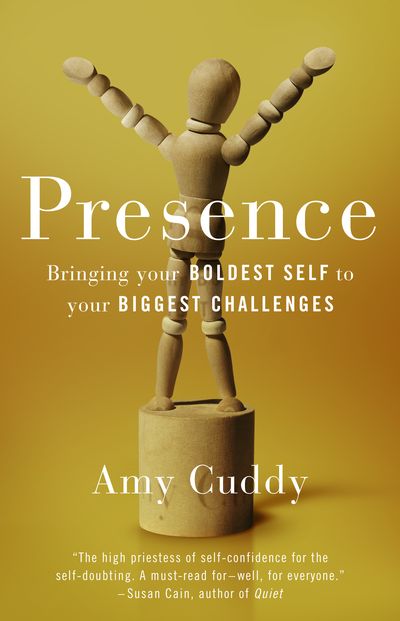
Purchase Presence on Amazon.com.
Follow Marie Claire on Instagram for the latest celeb news, pretty pics, funny stuff, and an insider POV.
I'm the features editorial assistant at Marie Claire. Before working at MC, I spent time in the production department at The New Republic and writing about politics for Bustle. When I'm not writing, you can find me museum-hopping, practicing mediocre yoga, and stalking pugs on Instagram.
-
 Tyla's Coachella Outfit Pairs Dolce & Gabbana With Pandora
Tyla's Coachella Outfit Pairs Dolce & Gabbana With PandoraThe singer wore a gold version of the crystal bra made famous by Aaliyah.
By Amy Mackelden Published
-
 How Kate Middleton Is Influencing George's Fashion Choices
How Kate Middleton Is Influencing George's Fashion ChoicesThe future king's smart blazer is straight out of Princess Kate's style playbook.
By Amy Mackelden Published
-
 King Charles "Couldn't" Meet Prince Harry During U.K. Visit
King Charles "Couldn't" Meet Prince Harry During U.K. Visit"It could actually bring down a court case."
By Amy Mackelden Published
-
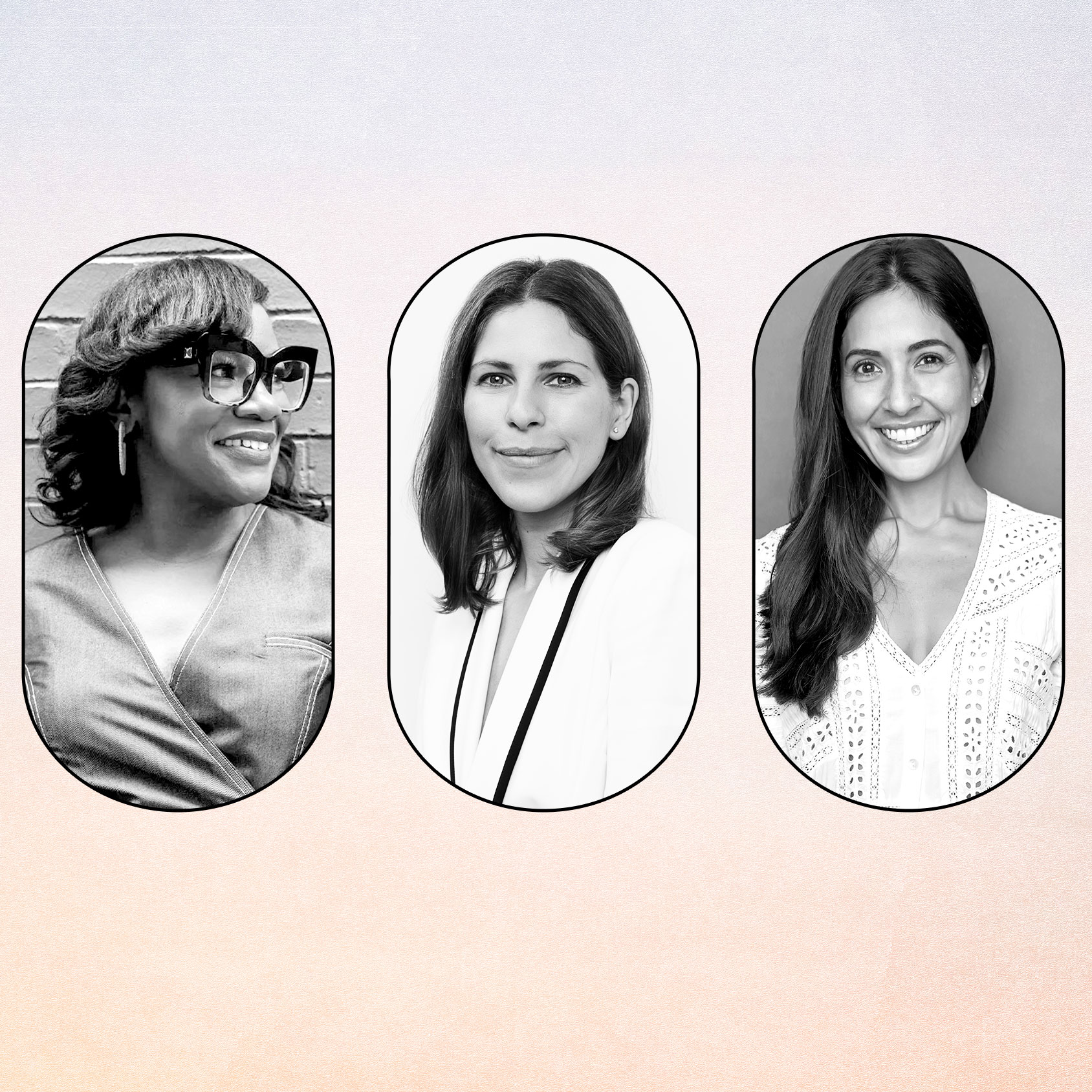 3 CEOs Disrupting and Democratizing Women's Health
3 CEOs Disrupting and Democratizing Women's HealthThe founders of these startups were unwilling to wait for the massive ship that is the American healthcare system to course correct for women.
By Tanya Benedicto Klich Last updated
-
 Peloton’s Selena Samuela on Turning Tragedy Into Strength
Peloton’s Selena Samuela on Turning Tragedy Into StrengthBefore becoming a powerhouse cycling instructor, Selena Samuela was an immigrant trying to adjust to new environments and new versions of herself.
By Emily Tisch Sussman Published
-
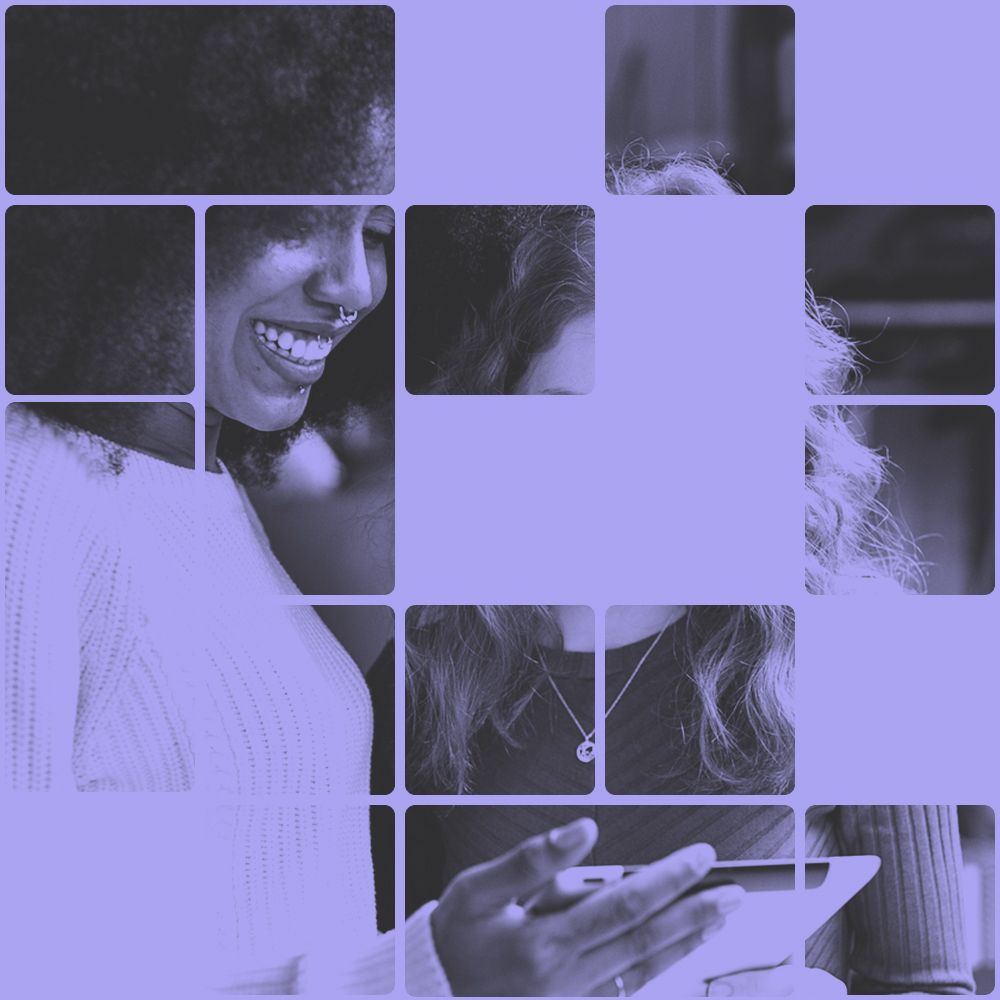 Where Did All My Work Friends Go?
Where Did All My Work Friends Go?The pandemic has forced our work friendships to evolve. Will they ever be the same?
By Rachel Epstein Published
-
 Reporting in Real Time: 5 Journalists Reflect on Covering 9/11
Reporting in Real Time: 5 Journalists Reflect on Covering 9/11Twenty years ago, these women told the stories of leaders, first responders, witnesses, and victims. Today, they tell their own.
By Rachel Epstein Published
-
 Inside the 'USA Today' Newsroom During the 9/11 Attacks
Inside the 'USA Today' Newsroom During the 9/11 AttacksSusan Miller, then the news copy desk chief, watched smoke billow past her office windows. She decided to keep working anyway.
By Rachel Epstein Published
-
 On 9/11, Sonya Ross Had to Balance Her Journalistic Duty and Personal Safety
On 9/11, Sonya Ross Had to Balance Her Journalistic Duty and Personal SafetyThe former AP White House reporter was one of five journalists selected for the "nuclear bunker pool" that traveled with President George W. Bush aboard Air Force One.
By Rachel Epstein Published
-
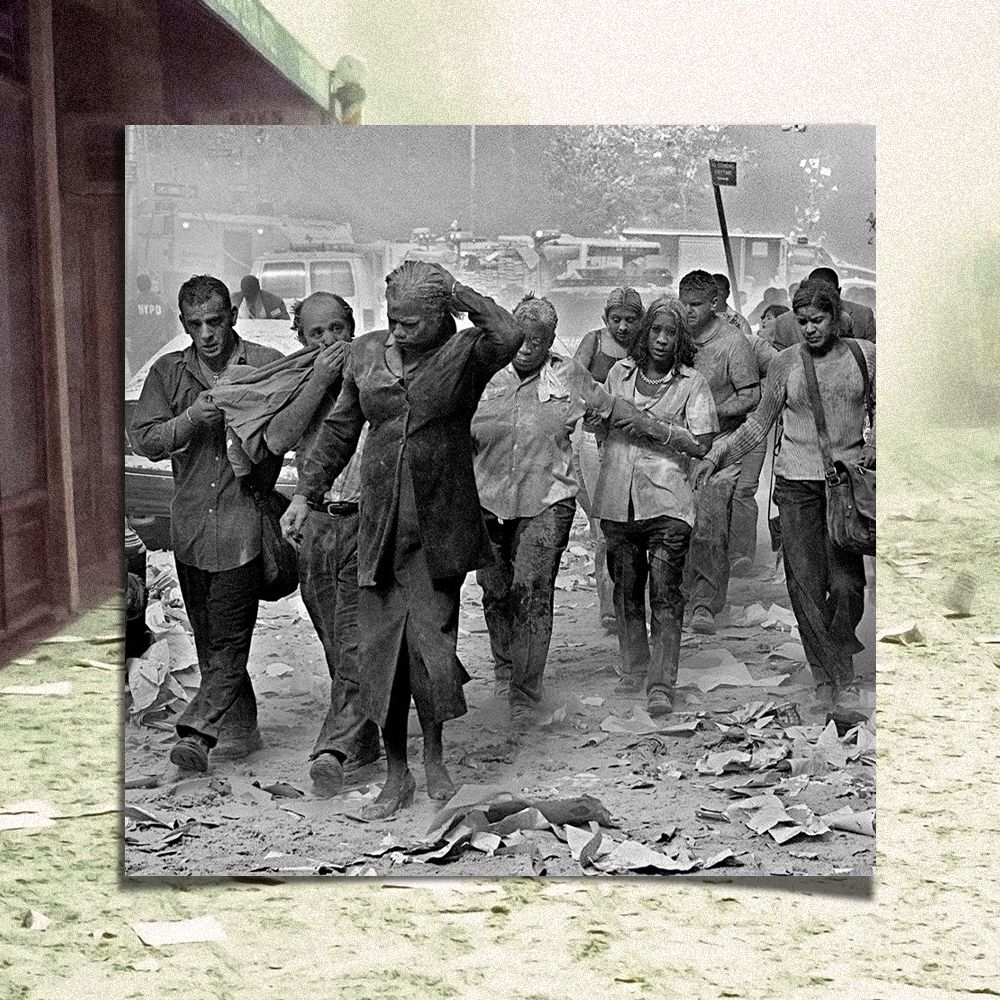 On 9/11, Gulnara Samoilova Watched the South Tower Collapse Through Her Camera
On 9/11, Gulnara Samoilova Watched the South Tower Collapse Through Her CameraA seasoned photojournalist, Samoilova's instincts were to run towards the scene. Looking back 20 years later, she might not have made the same decision.
By Rachel Epstein Published
-
 1 Writer and 100+ Reporters: The Making of the 'TIME' 9/11 Cover Story
1 Writer and 100+ Reporters: The Making of the 'TIME' 9/11 Cover StoryNancy Gibbs reflects on writing the cover story for the black-bordered special issue many people still have saved today.
By Rachel Epstein Published
